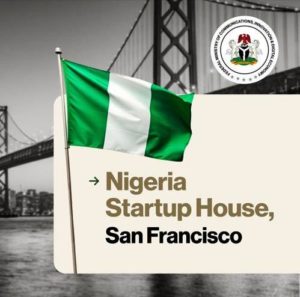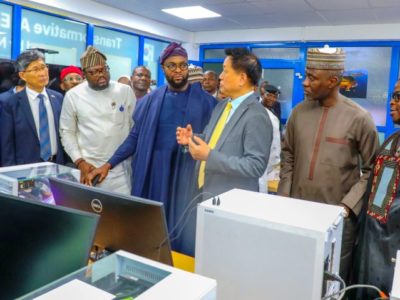
The Federal Executive Council (FEC) of Nigeria has approved the creation of a Special Purpose Vehicle (SPV) to accelerate the deployment of fiber optic cables nationwide and the establishment of a Nigerian Digital Technology Exchange Programme Hub in San Francisco, USA.
RELATED: Fibre is now the dominant broadband access technology in half of all OECD countries
These initiatives aim to position Nigeria as a key player in the global technology landscape, according to ‘Bosun Tijani, Minister of Communications, Innovation, and Digital Economy.
“We have secured two approvals that offer significant opportunities for Nigerians in general, and specifically for our digital startup ecosystem,” Tijani announced.
Adding: “The first is the launch of an SPV that will support the delivery of an additional 90,000km of fiber optic cable, enhancing our existing connectivity infrastructure and creating a stronger national backbone for universal internet access across Nigeria.”
SPV model to grow Nigeria’s fiber optic from 35,000km to 125,000km
The SPV, modelled after successful Public-Private Partnerships such as Nigeria Inter-Bank Settlement System Plc (NIBSS) and Nigeria LNG Limited (NLNG) will collaborate with government and private sector partners to increase Nigeria’s fiber optic coverage from the current 35,000km to 125,000km.
This expansion will make Nigeria’s terrestrial fiber optic network the third longest in Africa, following Egypt and South Africa. The enhanced coverage will leverage Nigeria’s eight submarine cables, increasing data capacity usage from the current 10%.
“This increased connectivity will bridge the current non-consumption gap by connecting over 200,000 educational, healthcare, and social institutions across Nigeria,” Tijani explained. “Immediate benefits include raising internet penetration to over 70%, reducing internet access costs by more than 60%, and including at least 50% of the 33 million Nigerians currently without internet access.
This expansion is projected to contribute up to 1.5% of GDP growth per capita, raising GDP from $472.6 billion in 2022 to $502 billion over the next four years.”
Nigerian Digital Technology Exchange Programme Hub
The second initiative, the Nigerian Digital Technology Exchange Programme Hub (Nigeria Startup House), will convert an existing Federal Government property in San Francisco into a hub for promoting Nigeria’s economic interests and attracting foreign investment.
“As part of our Trade and IEC Strategic Blueprint, the Nigerian Startup House will be instrumental in boosting Nigeria’s visibility in the global tech landscape, attracting funding and expertise from global markets, particularly those in the San Francisco Bay Area,” Tijani stated.
Adding: “The Bay Area, including Silicon Valley, is a global hotspot for startup funding, with a combined GDP of over $929 billion and home to over 200 of the world’s largest companies. Most of the $1.3 billion sourced by Nigerian tech startups in 2023 came from Bay Area venture capital funds.”
The Nigeria Startup House will remain owned by the Federal Government, represented by the Federal Ministry of Communications, Innovation & Digital Economy, and the Federal Ministry of Foreign Affairs. It will be managed by a consortium of Nigerian digital technology companies, which will provide non-public funding for its operations.
These initiatives reflect Nigeria’s commitment to advancing its digital infrastructure and integrating into the global technology ecosystem, promising substantial economic and technological benefits for the nation.































